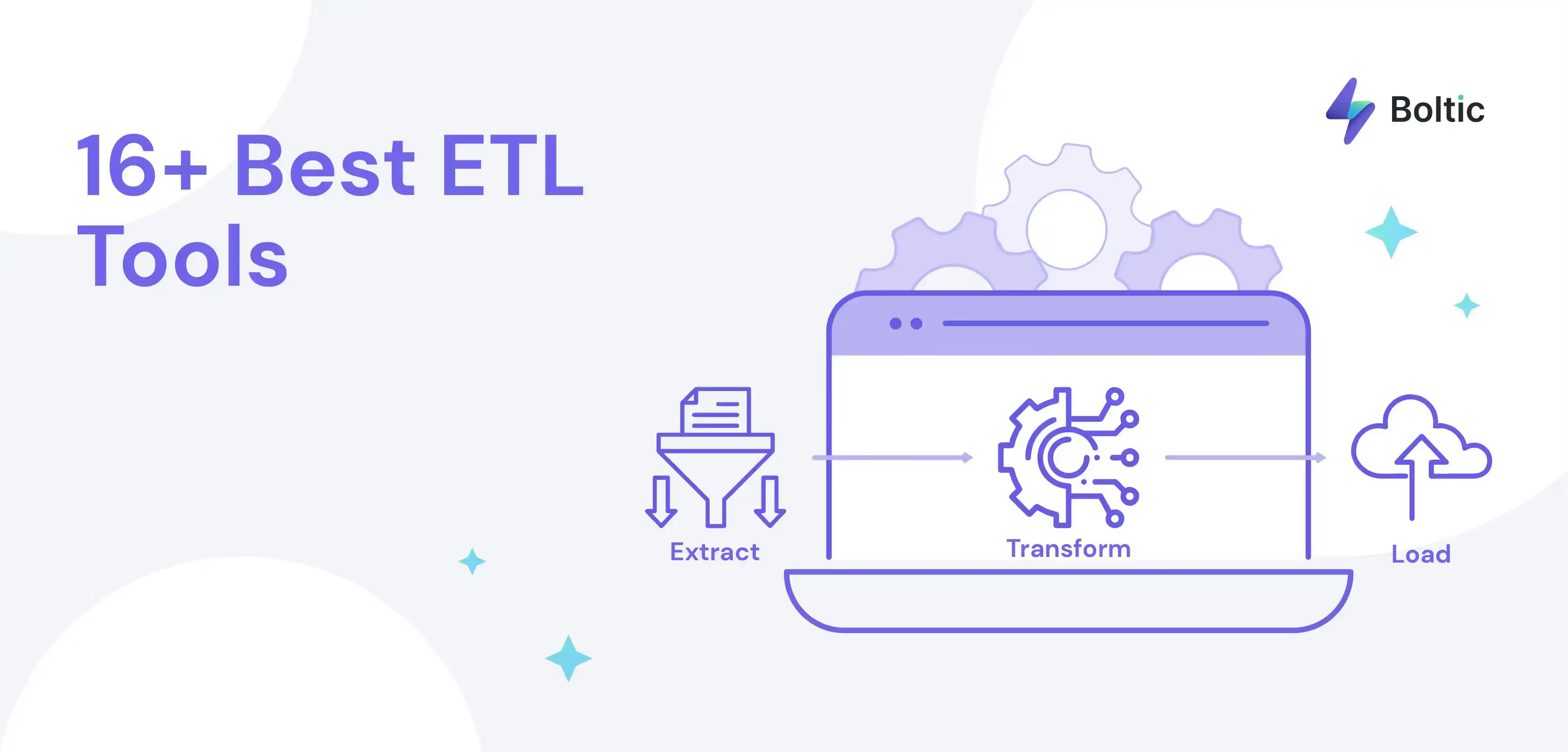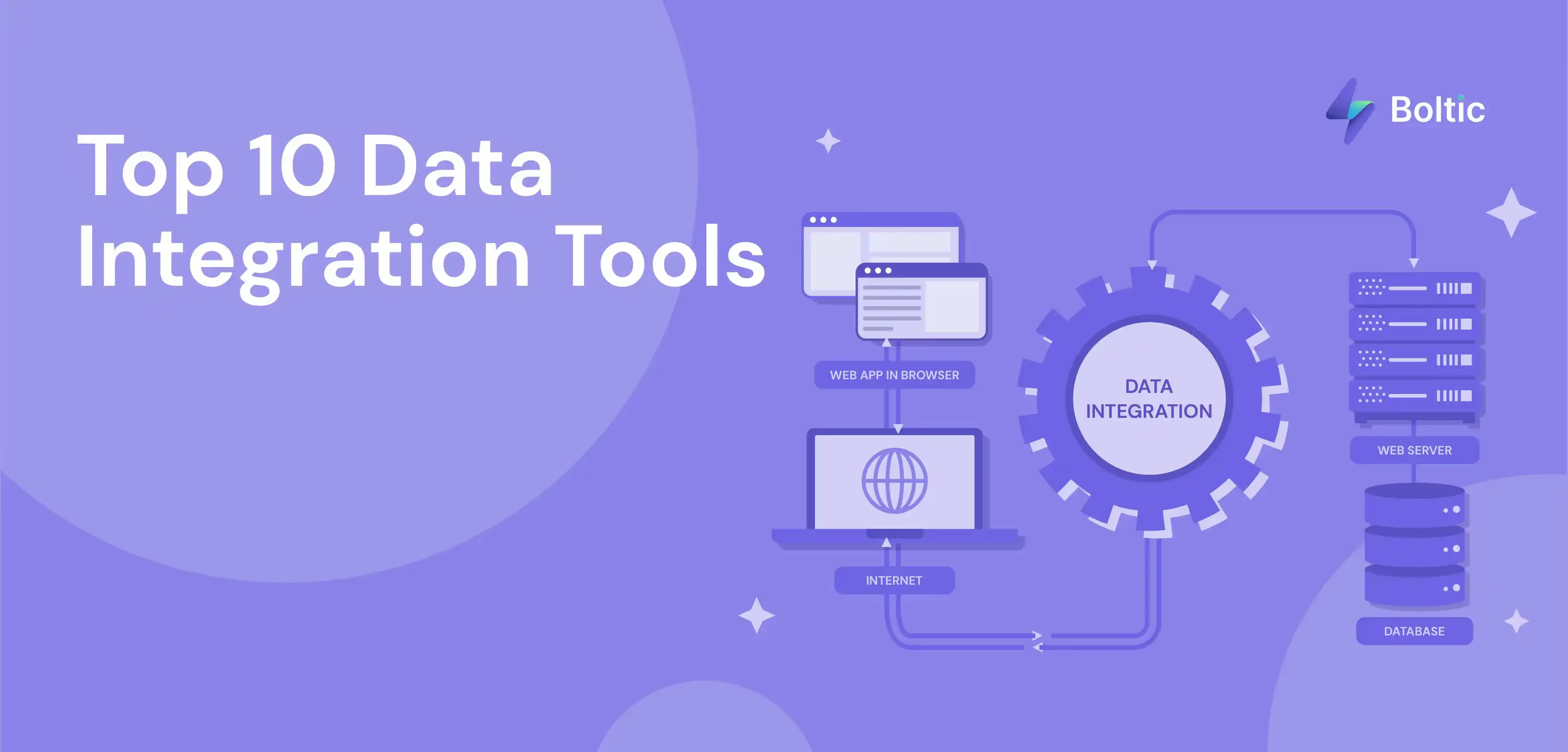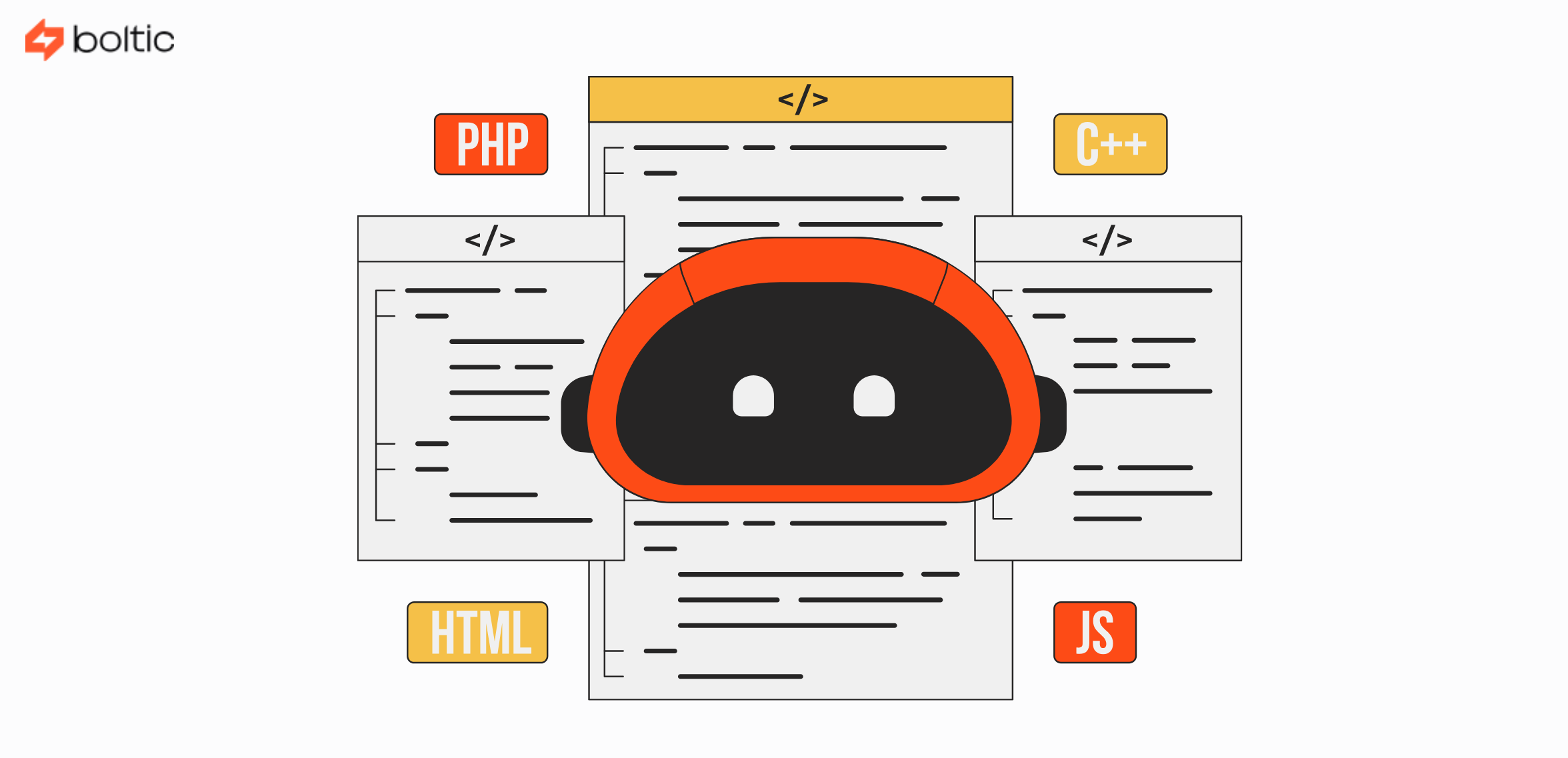An ETL tool is an essential component of a data-driven business. It helps extract data from various structured and unstructured sources, transforms it into a format that meets the operational and analytical requirements of the business, and loads it into a centralized repository. ETL is a three-step process that involves extracting data from multiple sources, transforming it into a format usable by the business, and then loading it into the target destination.
This process allows businesses to make better use of their data and glean insights that can help improve their operations. Several ETL tools are available in the market, each with its own set of features and capabilities. Let's dive deep into the most popular ETL tools in the market to see what they offer.
What Is ETL?

We have explained in brief about ETL in the introduction. Now, let us see what is ETL in detail. ETL stands for Extract, Transform, and Load. It is a process of extracting data from multiple sources, transforming it into a usable format, and then loading it into a destination where it can be used for further analysis or operational purposes. The extract phase involves extracting data from multiple sources.
These sources can be in the form of databases, flat files, or even streaming data. The data is then transformed into a format that can be used by the business. This includes cleansing the data, normalizing it, and aggregating it as per the requirements. Finally, the data is loaded into the target destination. This can be a data warehouse, a data mart, or even a relational database. The data can then be used for further analysis or operational purposes.
Why Do We Use ETL Tools?
There are several reasons why businesses use ETL:
- Firstly, it helps to consolidate multiple data sources into a single repository. This makes it easier for businesses to access and use the data.
- Secondly, ETL tools help to transform the data into a format that is usable by the business. This includes cleansing the data, normalizing it, and aggregating it as per the requirements.
- Thirdly, ETL tools help to load the data into the target destination. This can be a data warehouse, a data mart, or even a relational database. The data can then be used for further analysis or operational purposes.
- Fourthly, ETL tools help to automate the entire process of data extraction, transformation, and loading. This reduces the time and effort required to manually perform these tasks.
- Finally, ETL tools help to improve the quality of data. This is because they help to cleanse and transform the data into a format that is usable by the business.
What Are the Different Types of ETL Tools?
We can group ETL tools into four broad categories based on their functionality. These are:
Enterprise Software ETL Tools:
These are ETL tools that are designed for large enterprises. They offer a wide range of features and capabilities. Some of the popular enterprise software ETL tools include IBM DataStage, Informatica PowerCenter, Oracle Data Integrator (ODI), and SAP Data Services.
Open Source ETL Tools:
These are ETL tools that are available for free. They offer a limited set of features and capabilities when compared to enterprise software ETL tools. Some of the popular open-source ETL tools include Apache NiFi, Talend Open Studio, and Pentaho Data Integration (PDI).
Cloud-Based ETL Tools:
These are ETL tools that are offered as a service. They are hosted on the cloud and can be accessed from anywhere. Some of the popular cloud-based ETL tools include Amazon Kinesis, Google Cloud Dataflow, and Microsoft Azure Data Factory.
No-Code/Low-Code ETL Tools:
These are ETL tools that do not require any programming skills. They are easy to use and can be used by anyone. Some of the popular no-code/low-code ETL tools include Boltic, Alteryx Designer, and Xplenty.
Most popular ETL tools in the market
Boltic:
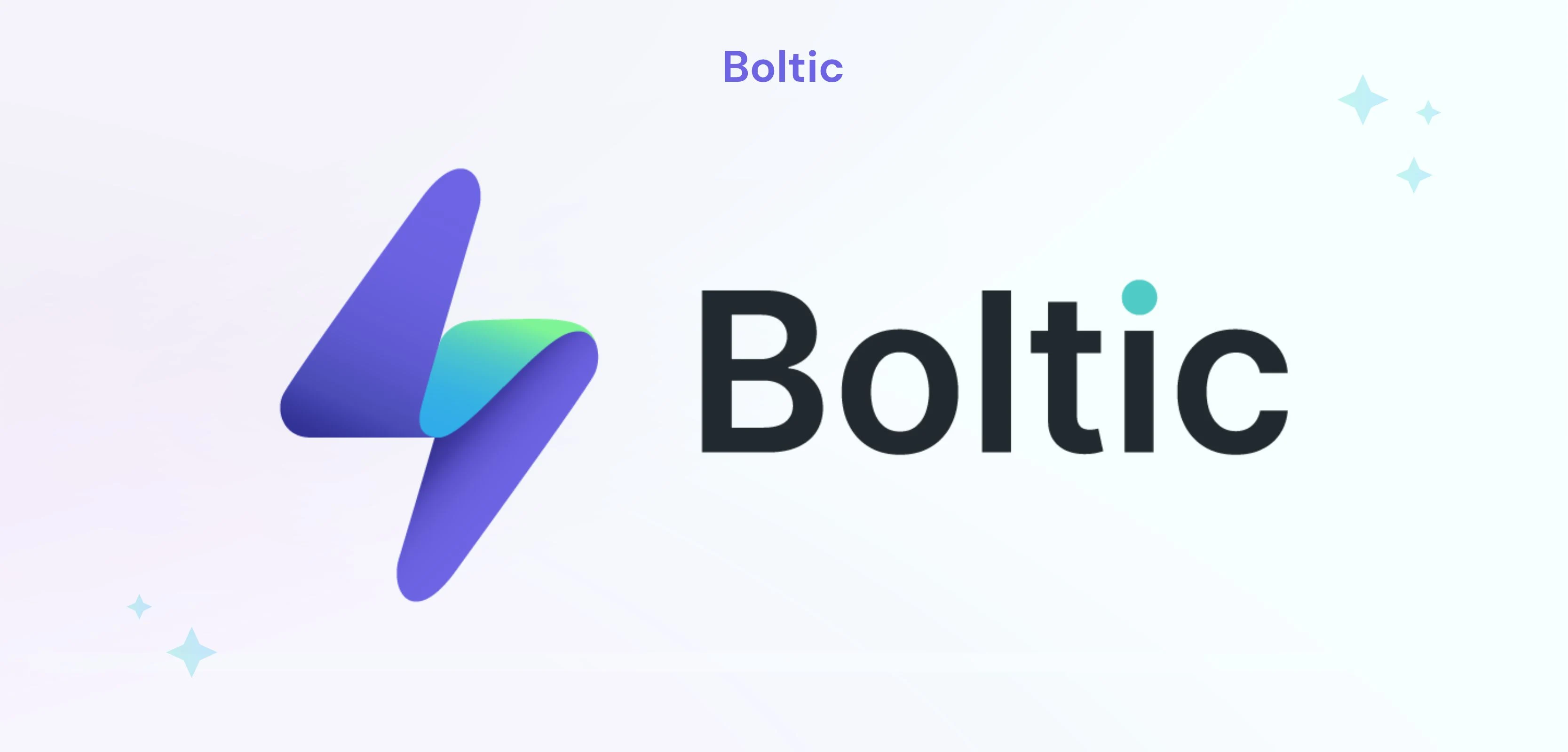
Boltic is a cloud-based, no-code ETL platform that enables users to quickly and easily build robust data pipelines without writing any code. It offers an intuitive user interface that allows users to create and manage their own custom workflows and schedule them for automation. Boltic also offers advanced features such as data mapping, data validation, and real-time monitoring for those who need more robust features. It is highly scalable and allows you to create multiple pipelines simultaneously. The platform also supports a wide range of databases and cloud storage solutions, making it easy to connect with almost any data source.
Key features:
- Intuitive user interface and easy to use.
- It offers a drag-and-drop interface that requires no coding skills.
- It also supports data formats such as SMTP, Google Sheets, REST API, Excel, JSON, CSV, BigQuery, and NoSQL, SQL.
- It allows users to automate data transformations with a few clicks.
- It supports real-time data streaming as well as batch processing, making it ideal for both on-prem and cloud environments.
Pricing:
Boltic offers three plans for users with varying needs. The Startup plan is free, the Growth plan costs $229/month, and the Enterprise plan is for organizations that need stronger governance, advanced data processing capabilities, and more advanced analytics.
AWS Glue ETL Tool:
.webp)
AWS Glue is an ETL (Extract, Transform, and Load) tool from Amazon that provides efficient data cataloguing, transformation and programming services to facilitate working with Big Data. This makes it easy to build modern ETL functions in the cloud rapidly. With built-in data cataloguing and programmability capabilities, it helps users extract their data right away and quickly transform them into the desired format, thus allowing enterprises to create sophisticated ETL workflows tailored and optimised for their specific needs.
In addition, it provides both visual and code-based interfaces to make data integration easier. The AWS Glue Data Catalog is used to find and access data easily. Data engineers and ETL developers use visual tools in AWS Glue Studio to create, run, and monitor ETL workflows with a few clicks.
Key features:
- Automate and scale data ingestion, transformation, and loading without having to manage servers.
- Seamlessly connect with PostgreSQL, MySQL, MariaDB, Oracle Database and SQL Server for optimal performance.
- Our platform is capable of producing results in multiple forms, such as JSON, CSV, Parquet, ORC, Avro and Grok.
- Instantly receive Email, SMS, and Mobile push notifications with ease!
- Customer support is available through the easy-to-use Contact Form, so any of your inquiries or issues can be quickly and efficiently addressed.
Pricing:
The cost of using AWS Glue depends on the resources used. The actual cost for your specific workloads will depend on the type, volume, and complexity of the data you are dealing with. We recommend that you use the AWS Pricing Calculator to get an estimate of your costs before getting started.
Oracle Data Integrator ETL Tool:
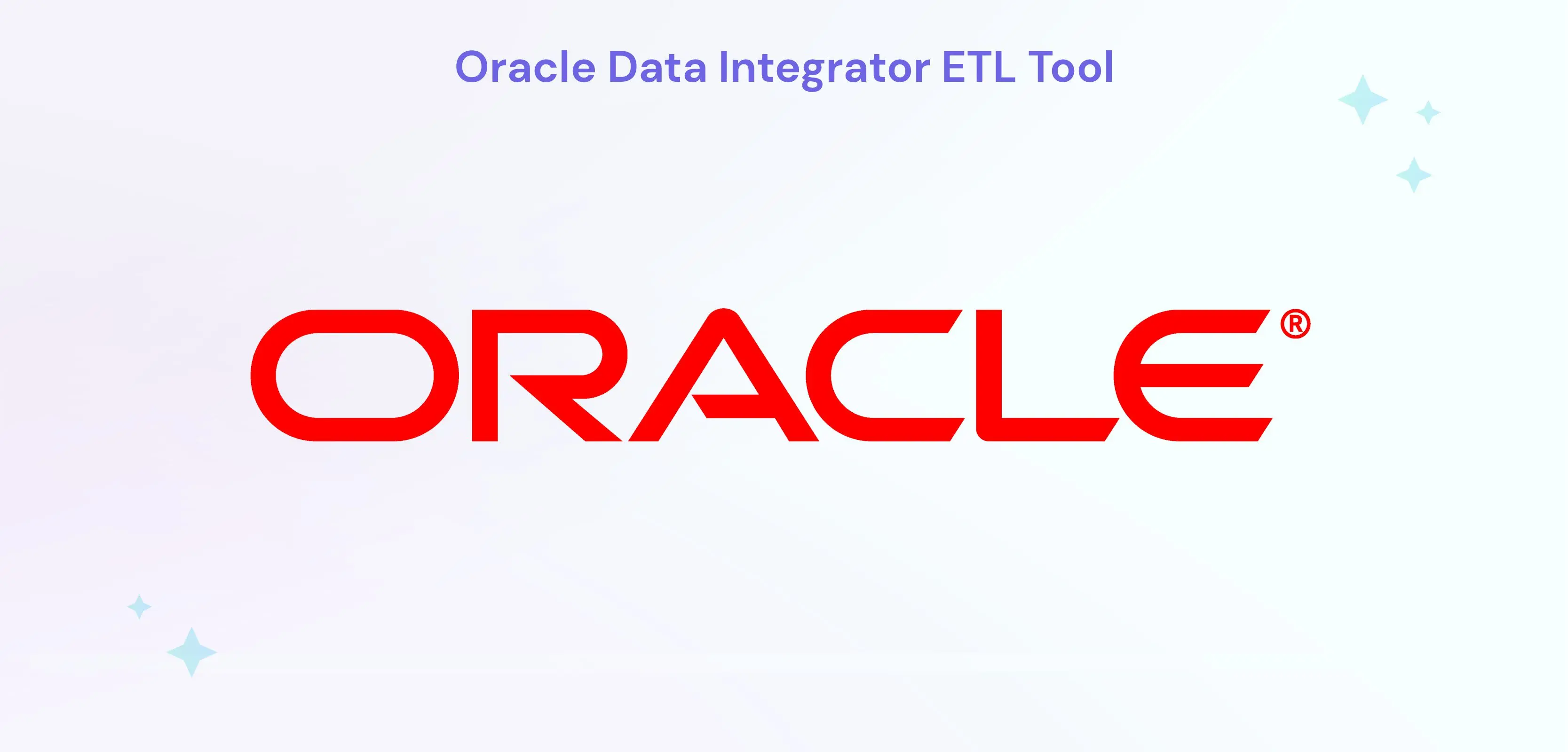
Oracle Data Integrator (ODI) is a powerful platform for larger enterprises running Oracle applications such as Enterprise Resource Planning (ERP). ODI enables data to be transferred effectively between different business functions across the entire company. It supports integrated workflows and can process data integration requests from high-volume batch loads to service-oriented architecture (SOA) data services, allowing software components to be reused in various processes.
Additionally, ODI offers parallel task execution for faster data processing and built-in integrations with other Oracle tools such as Oracle GoldenGate and Oracle Warehouse Builder.
Key features:
- ODI implements a declarative approach for developing ETL solutions on top of an underlying ELT architecture. This allows parallel execution of transformations on the target database as well as improved performance through native bulk loading operations.
- Oracle Data Integrator is a commercially licensed RTL tool.
- Oracle Data Integrator enables seamless data integration in real-time, allowing businesses to easily migrate their existing data warehouses or applications onto the cloud.
- Oracle's products are robust, efficient, and adept at processing and transforming data with seamless integration into existing RDBMS systems.
- Faster, easy development and maintenance.
Pricing:
Oracle Data Integrator pricing is based on a subscription model and depends on the number of users and other factors such as support options and training. For more information, please get in touch with Oracle directly.
Informatica PowerCenter:

Informatica PowerCenter allows for the full range of Data Integration solutions, from batch to real-time or Change Data Capture (CDC). This enterprise Data Integration solution provides high performance and scalability, enabling organisations to manage their data integration initiatives as a single platform. Furthermore, PowerCenter ensures that data is always available, on-demand. This ensures that users have access to the most up-to-date information, allowing for faster and better decisions. It is the ideal solution for any organisation that needs to manage its data integration needs effectively.
Key features:
- Informatica PowerCenter offers high performance and scalability through parallel data processing and distributed architecture.
- It supports the integration of structured, semi-structured and unstructured data from multiple sources.
- Data Quality capabilities are available for trusted and reliable data.
- Capable of migrating large amounts of data from legacy systems to current applications.
- Informatica PowerCenter includes a rich library of pre-built connectors for popular databases, applications, platforms and enterprise systems.
Pricing:
The number of users and usage type prices Informatica PowerCenter. For a single user, pricing starts at $2,000 per month, and a free trial is available.
Integrate.io:
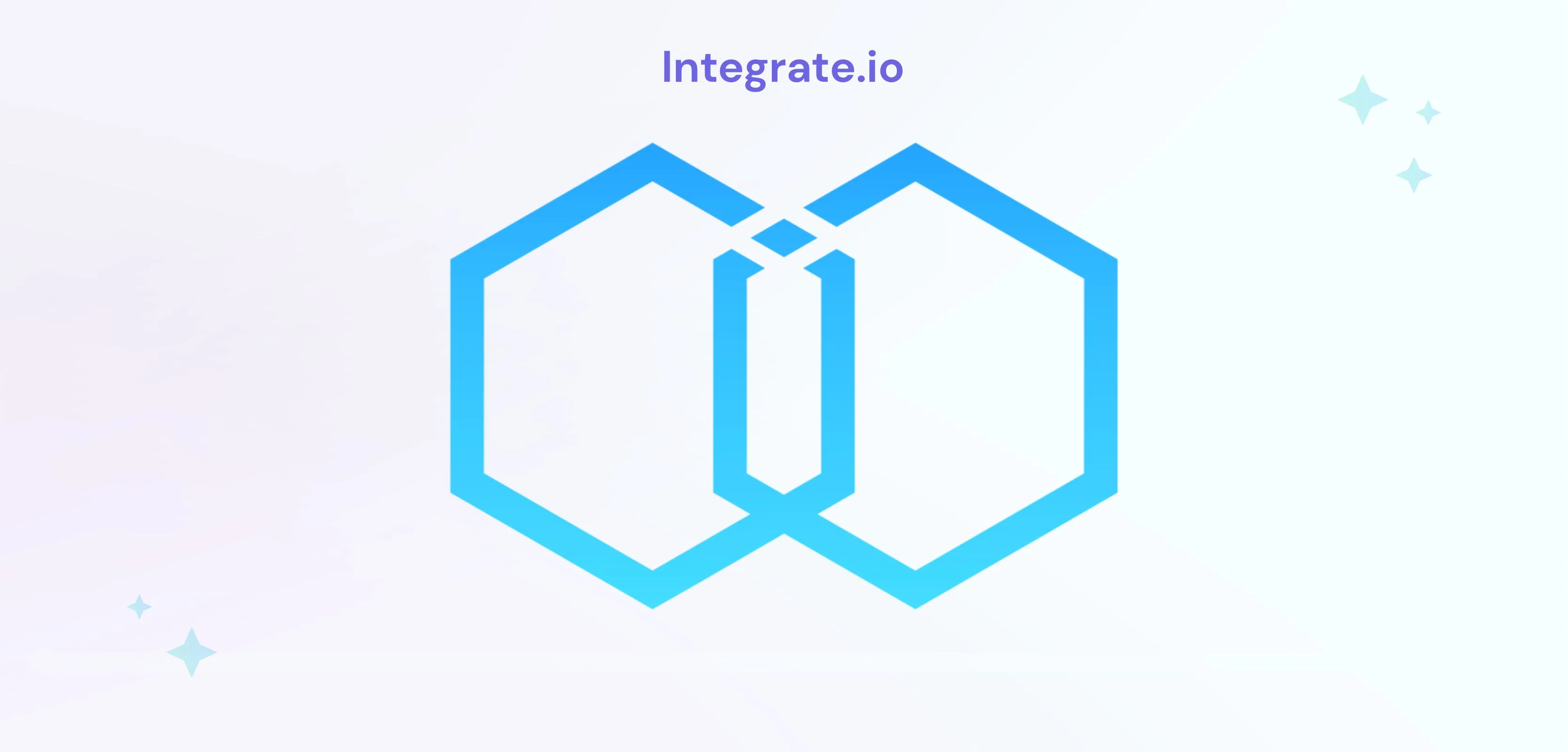
Integrate.io is an innovative data integration solution that helps businesses to quickly, easily and securely connect their data sources with their applications. Integrate.io enables companies to rapidly develop complex data pipelines without the need for manual coding. With pre-built connectors for popular applications and data sources, users can quickly design data pipelines that are resilient and scalable.
Key features:
- Quickly connect your data from multiple sources without complex coding.
- Easily send data to any databases, on-premise systems, data warehouses, NetSuite accounts and Salesforce instances.
- Integrate.io seamlessly bridges the gap between E-commerce providers such as Shopify, NetSuite, BigCommerce and Magento.
- Ensure your full compliance with security measures like field-level data encryption, SOC II certification, GDPR adherence, and data masking.
- It prioritizes customer support and customer feedback.
Pricing:
Integrate.io offers several pricing tiers depending on the number of data sources and connectors needed. This platform also offers 14-day free trial for users.
Skyvia:

Skyvia is an innovative cloud data platform created by Devart - a renowned provider of data access solutions and software products with over 40 000 satisfied customers. Skyvia enables you to seamlessly perform data integration, backup, management and access without the need for coding. It supports CSV files, databases (SQL Server, Oracle, PostgreSQL, MySQL), cloud data warehouses (Amazon Redshift, Google BigQuery), and cloud applications such as Salesforce, HubSpot, and Dynamics CRM, among many others.
In addition to its ETL capabilities, Skyvia offers a cloud data backup tool, an online SQL client, and an OData server-as-a-service solution. With Skyvia, businesses can simplify their data operations and take control of their data.
Key features:
- Skyvia is a cloud solution that offers both commercial and free plans.
- Support for bi-directional synchronisation of data between applications.
- Ability to automate integration by scheduling tasks.
- Wizard-based configuration with no coding required, making it easy to use for users without much technical knowledge.
- Import data without duplicates.
Pricing:
Skyvia offers five pricing plans: the first is the Free plan, the second one is the Basic plan ($15/month), the third is the Standard plan ($79/month), the fourth one is the Professional plan ($399/month), and finally, the fifth one is Enterprise plan (custom price). All plans come with a 14-day free trial. Skyvia also offers discounts based on usage.
Dataddo

Dataddo provides a comprehensive solution to data integration that suits the needs of both technical and non-technical users. By utilising fully flexible data pipelines, customisable metrics, intuitive interfaces and managed APIs, it simplifies complex tasks while adapting easily to existing workflows. With Dataddo, users can quickly integrate their data without worrying about tedious maintenance and setup processes. This helps them to focus on their data and achieve the desired results faster.
Key features:
- Quick and easy data integration with no coding required.
- Automated task scheduling for recurring jobs.
- User-friendly UI with intuitive interfaces for non-technical users.
- Robust analytics capabilities that can analyse large datasets in minutes.
- Integration with popular cloud storage solutions such as Amazon S3 and Google Cloud Storage.
- With customisable metrics and attributes, you can create sources that fit your specific needs.
- It only takes 10 days for new connectors to be added upon request!
- A centralised system to continuously monitor the progress of all data pipelines.
Pricing:
Dataddo offers four pricing plans: the first one is Free, the second one is Data to Dashboards ($99/month), the third one is Data Anywhere ($99/month), and finally, the fourth one is Headless Data Integration which, is fully custom.
Pentaho Data Integration

Pentaho is a software company that provides the Pentaho Data Integration (PDI) product, also known as Kettle. Headquartered in Florida, USA, Pentaho offers a range of services, including data integration, data mining and STL capabilities. In 2015, Hitachi Data System acquired Pentaho, making it part of its business intelligence suite. Pentaho Data Integration allows users to cleanse and prepare data from different sources and enables the migration of data between applications. It is an open-source product and is an excellent tool for managing data in any organisation.
It is also an efficient and cost-effective solution for optimising data management. With Pentaho's services, businesses can streamline operations and achieve greater operational efficiency.
Key features:
- Enterprise and Community edition users have access to PDI for their respective needs.
- Effortlessly user-friendly and intuitive to learn.
- User-friendly and graphical interface with drag-and-drop features.
- Integrate with popular business intelligence platforms such as Tableau, Qlik, and Power BI
- Cost-effective solution for data management.
Pricing:
Pentaho offers numerous it all depends upon you and your requirement. Basically, it is an ideal tool for business.
SAS – Data Integration Studio:
.webp)
SAS Data Integration Studio provides a graphical interface that helps developers quickly and easily design, build, schedule, execute and monitor data integration processes. It has an advanced transformation logic that allows the user to extract data from any application or platform, transform it according to their requirements, and integrate it with other systems.
This powerful tool simplifies data integration processes, allowing developers to maximise their productivity. Furthermore, SAS Data Integration Studio offers intuitive tools for visualising data flow and debugging errors quickly and efficiently. Thus, it is an excellent tool for any developer looking to simplify the process of integrating data from different sources.
Key features
- It simplifies the execution and maintenance of the data integration process.
- It provides a robust error handling system which helps in preventing unexpected errors from occurring during the data integration process.
- SAS Data Integration Studio provides security features such as user authentication, data encryption and access control. This helps in ensuring that the data is secure and protected during the integration process.
- Easy to use and wizard-based interface.
- By quickly and effectively resolving data integration issues, this solution reduces the cost of implementation.
Pricing:
Check on the SAS website for pricing plans. They have various options that can be tailored to your specific needs.
Azure Data Factory:

Azure Data Factory is a powerful and versatile tool that enables users to create ETL pipelines without any programming knowledge. It provides a secure, serverless, fully-managed environment for data integration services. With Azure Data Factory, users can quickly connect disparate data sources, combine and transform the data, then feed it into Azure Synapse Analytics for further analysis. This allows businesses to gain valuable insights into their operations and drive growth. Azure Data Factory is an efficient and cost-effective solution for integrating data sources in the cloud.
Key features:
- Simple and intuitive user interface with drag-and-drop features.
- The pay-as-you-go pricing model offered by this service makes it incredibly cost-effective, allowing you to enjoy maximum savings.
- Azure Data Factory makes it effortless to capture all your SaaS and software data with more than 90 pre-installed connectors.
- Data privacy, governance, and customization for maximum security and personalization.
- Azure data factory offers easy-to-use, cost-effective, powerful and intelligent.
Pricing:
These tools have two plans: Monthly and Yearly plans. The monthly plan costs Rs.3171/month, and the yearly plan costs Rs. 25944/year. It all depends on your needs and requirement.
Stitch:
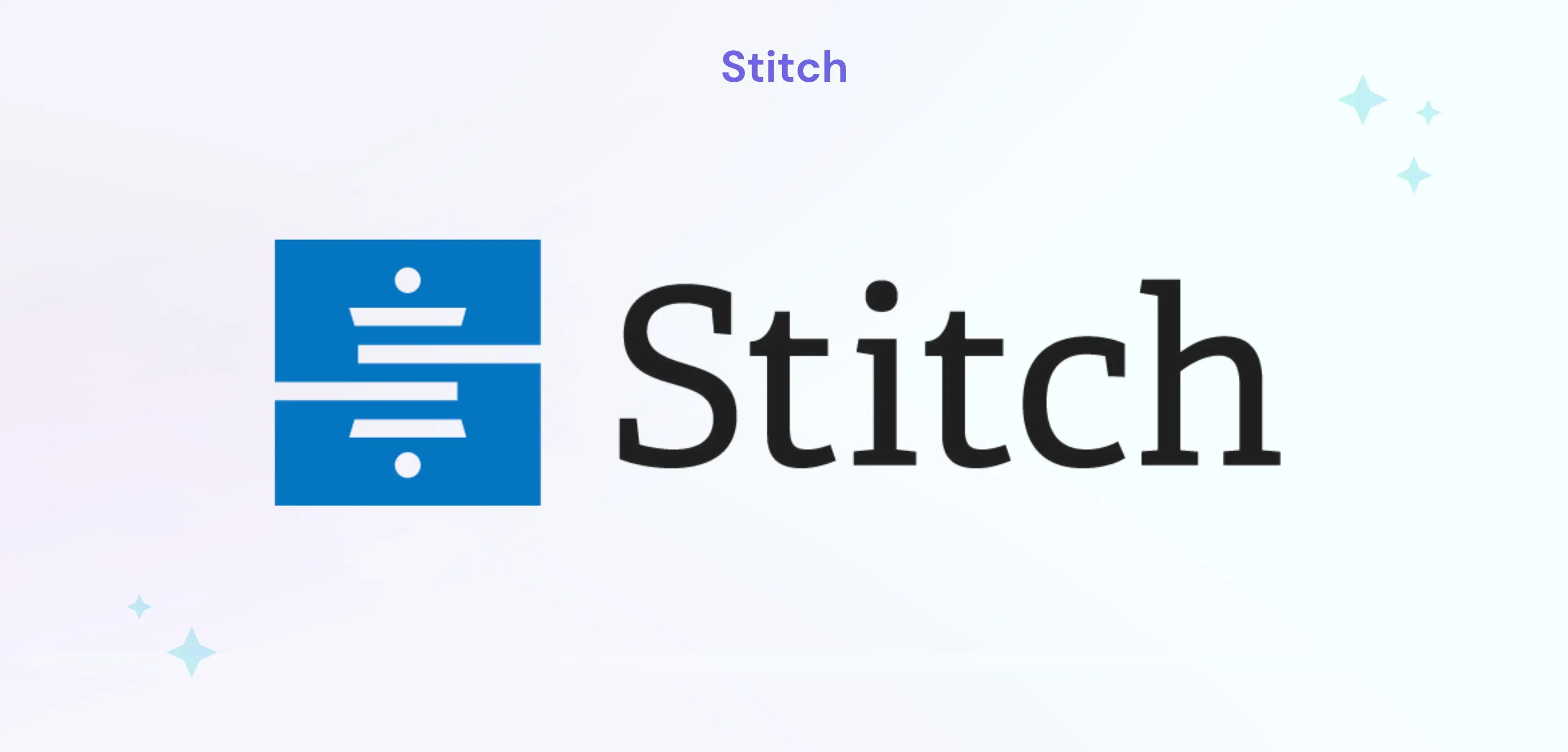
Stitch is an essential data integration service for organizations looking to streamline their data management. With support for over 130 platforms and services, Stitch enables users to rapidly import and centralize all their data in a single data warehouse without any manual coding required. The tool offers robust analysis and governance capabilities to ensure compliance with internal and external regulations. Moreover, Stitch is open source, meaning developers can customize and extend the platform to meet their specific requirements further. With Stitch, businesses can save time and money while maintaining a secure data environment.
Key features:
- Integrates with over 130 source platforms.
- Delivers real-time analytics to track data in motion.
- Secure and scalable cloud environment for data storage.
- Easy to use, self-service interface for setting up integration jobs.
- Open source platform for developers to extend the capabilities of Stitch.
Hadoop ETL Tools:

Apache Hadoop is an open-source, distributed computing framework that enables users to process large datasets. With its powerful ETL (Extract, Transform and Load) tools, users can easily move data from one system to another. These tools make it easier for developers to analyze data quickly and accurately, allowing them to identify trends and uncover valuable insights. Hadoop’s ETL tools are excellent for companies looking to streamline their data integration processes.
Key features:
- Scalable architecture that can handle large datasets.
- Provides a unified platform for data storage and processing.
- Integrates with other open-source platforms and services.
- Powerful ETL tools to quickly move data from one system to another.
- Cost-effective, with no need for expensive hardware or software investments.
Pricing:
Apache Hadoop is free and open-source, so there are no additional costs for using its ETL tools.
Snowflake ETL Tool:
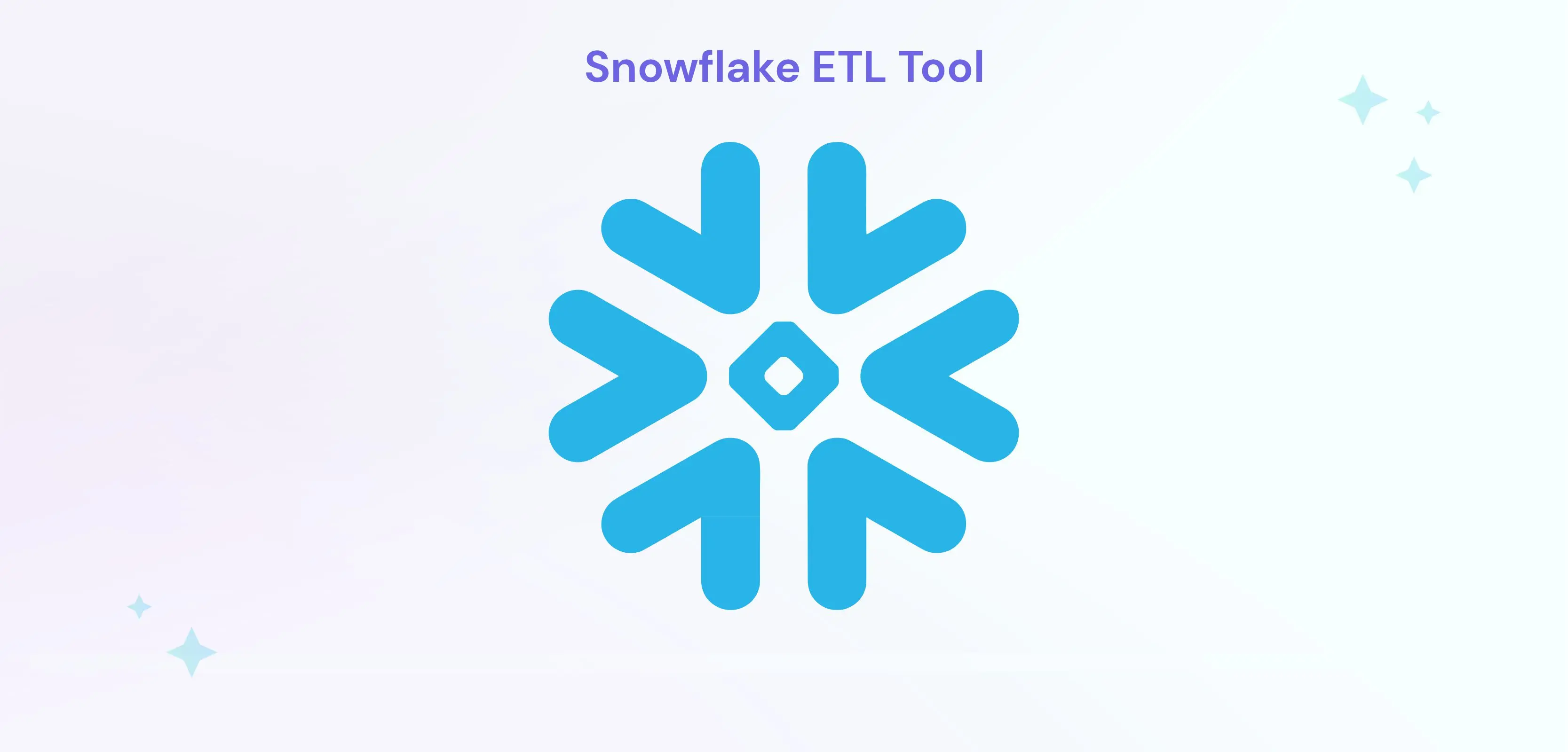
Snowflake ETL Tool is a powerful asset for managing data extraction, transformation, and loading processes. It simplifies the handling of increasingly complex systems and allows users to extract data from many sources - including internal databases, flat files and third-party APIs - quickly and easily. Snowflake brings together data engineering, data warehousing and analytics into a single platform so that users can work efficiently with their data. Additionally, its user-friendly interface supports full automation and real-time monitoring of any transformation process.
Key features:
- User-friendly interface for easy use.
- Real-time monitoring and automation for improved efficiency.
- Automatic handling of data transformation and loading processes.
- Integrates with a variety of data sources, including databases, flat files, and APIs.
- Secure cloud platform for greater data security.
Pricing:
Snowflake ETL Tool is available in four plans: Standard, Enterprise, Business critical and Virtual private snowflake(VPS) plans. The pricing for these plans depends on the customer's needs and requirements.
ETL Tools Python

ETL stands for Extract-Transform-Load and is used in data analysis. Python is a popular language used to create ETL tools on various platforms. Companies often take advantage of the flexibility Python provides to customize their ETL process, ensuring they can effectively extract, transform, and load the data they need efficiently. Using Python allows developers to build specialized scripts that perform specific tasks with high precision and speed.
With this language, businesses can develop automation and integrate various data sources quickly and easily into their workflow without having to learn complex programming languages. This helps save time and resources when dealing with large amounts of data, allowing them to focus on more critical tasks at hand.
Key features:
- A flexible language that can be used to customize ETL processes.
- Easy integration of multiple data sources into a single workflow.
- Provides a powerful platform for developing specialized scripts.
- Highly efficient and fast performance when dealing with large datasets.
- Comprehensive libraries for easy manipulation of data.
Pricing:
It is free and open-source, so there are no additional costs for using Python as an ETL tools. However, additional services or software may require payment depending on the customer's needs and requirements. Additionally, businesses may need to hire a developer who is experienced in using Python for ETL purposes.
Open source ETL tools
Open source ETL tools are very popular these days, you can use them to easily extract, transform, and load data from a variety of sources into a centralized data warehouse for analysis and reporting. There are many different ETL tools available, each with its own strengths and weaknesses.
Let's take a look at some of the most popular open-source ETL tools to help you choose the right one for your needs.
1. Talend Open Studio for Data Integration:
Talend Open Studio for Data Integration is one of the most popular open source ETL tools available. It is easy to use and provides a wide range of features. Talend Open Studio can be used to connect to a variety of data sources, including databases, web services, and flat files. It provides a drag-and-drop interface that makes it easy to create ETL jobs.
2. CloverETL
CloverETL is another popular open-source ETL tool. It is Java-based and can be used to connect to a variety of data sources. CloverETL provides a graphical user interface that makes it easy to create ETL jobs. It also includes a number of built-in connectors for popular data sources.
3. Pentaho Data Integration
Pentaho Data Integration is an open-source ETL tool that is part of the Pentaho BI Suite. The features allow you to easily connect to a variety of data sources, prepare and transform data, and load it into a centralized data warehouse.
4. SpagoBI
SpagoBI is an open-source Business Intelligence suite that includes an ETL tool. It helps business users to overcome the complexity of data integration. SpagoBI provides a graphical interface that makes it easy to create ETL jobs. It also has a number of built-in connectors for popular data sources.
5. GeoKettle
GeoKettle is an open-source ETL tool with specialized functionality for working with spatial data. It helps users to easily load, transform, and export spatial data from a variety of sources. Spatial data can be visualized and analyzed using the tool's graphical interface.
6.Singer
Another powerful and popular open-source ETL tool is Singer. It helps you to easily extract data from a variety of sources and load it into a central repository for analysis and reporting. Singer provides a simple, yet powerful, interface for creating ETL jobs. It also includes a number of built-in connectors for popular data sources.
How to compare ETL tools?
There are various factors to consider while comparing ETL tools. Some of the essential elements are listed below:-
- Data sources: The first and foremost factor to consider while comparing ETL tools is the data sources supported by the tool. The tool should be able to connect to all the data sources that are required for the project.
- Data types: The tool should be able to handle all the data types that are required for the project.
- Transformation: The tool should provide all the required transformation features for the project.
- Scheduling: The tool should be able to schedule the ETL process as per the requirement.
- Monitoring: The tool should have the ability to monitor the ETL process and alert the users in case of any errors.
- Reporting:The tool should be able to generate reports that give insights into the ETL process.
- Support: The tool should have good customer support in case of any issues.
- Pricing:The tool should be affordable and offer value for money.
- Ease of use: The tool should be easy to use and have a user-friendly interface.
- Documentation: The tool should have good documentation that is easy to follow.
Which is the best ETL tool for you?
The answer to this question depends on various factors mentioned above such as the data sources, data types, transformations, features required, ease of use, pricing, etc. It is important to evaluate all the options before choosing the right tool for the project. IBM Data Storage and Oracle Data Integrator are a good option for businesses that are looking for an enterprise-level ETL tool, whereas CloverETL is a good option for businesses that need a Java-based ETL tool. Singer is a good choice for businesses that need a simple, yet powerful, open-source ETL tool.
Conclusion
Now that you have a better understanding of ETL tools, you should be able to choose the right one for your needs. The tools mentioned in this article are the best ETL tools available on the market. If you were looking for an ETL tool, we hope this article has helped you choose the right one.Boltic provides you with a low-code/no-code platform that makes it easy to develop and deploy ETL jobs without any coding. You can try Boltic for free today. Our boltic.io team can further assist you in your decision-making process. Do not hesitate to contact us for more information.
drives valuable insights
Organize your big data operations with a free forever plan
An agentic platform revolutionizing workflow management and automation through AI-driven solutions. It enables seamless tool integration, real-time decision-making, and enhanced productivity
Here’s what we do in the meeting:
- Experience Boltic's features firsthand.
- Learn how to automate your data workflows.
- Get answers to your specific questions.

.avif)



